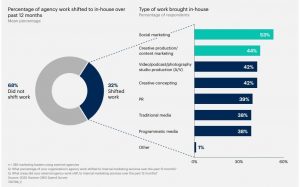We are rapidly approaching the end of the year, which historically is a time when business-owners review their annual performance and make strategic plans for the forthcoming 12 months. Marketing is likely to be a key area of focus, especially as trends and best practices continue to evolve at a rapid pace.
With the quality of content continuing to drive major marketing trends well into 2016 and beyond, it is crucial that businesses focus on factoring this into their SEO, SEM and social media plans. One of the best ways to achieve this is to launch an integrated, B2B blogging initiative, which drives the publication of high quality content and aggressive social sharing.
3 Strategic reasons to launch a B2B Blogging Strategy in the year ahead
With this in mind, here are three core strategic reasons to launch an integrated B2B blogging strategy in 2016: –
Drive and create new SEO Keyword Strategies
If we assume that content will continue to drive keyword visibility for business brands, it is increasingly important to publish SEO copy across multiple, online formats. A business blog should sit at the center of this strategy, as this creates a unique opportunity to publish keywords regularly in an organic manner.
Once you have identified and researched a broad range of natural, keyword options, you can create content that is relevant to these and gradually develop a natural back-link profile. The next step is to create a number of keyword-driven hyperlinks that connect individual blog posts, which enables search engines (and more specifically Google) to crawl consistent material that is unlikely to be altered or overly optimized.
Over time, you can also begin to integrate a smaller percentage of branded, home-page links into your blog. Although these should be kept to a minimum, they will add some diversity and depth to a natural back-link profile.
Become a thought Leader within your marketplace
As the thirst for high quality content and genuine industry insight becomes greater, brands have a great opportunity to emerge as coveted thought leaders. An insightful and regularly updated blog serves as the perfect entry point into a fruitful relationship with customers and fellow service providers, fostering a burgeoning reputation for relevant expertise and opening new lines of communication with prospects.
One of the best strategies is to drive your B2B blog with posts that target specific consumer issues or others which reference misconceptions that are associated with your industry. This type of concise and topical content will help to engage new and existing customers, providing them with an opportunity to ask further questions and interact directly with the brand. Readers are therefore sure to look out for additional posts through their RSS feeds, and this can effectively augment any surrounding email marketing campaigns.
A B2B Blogging Strategy can drive social media success
While employees and freelancers are well-aware that social media is a medium that can make or break their careers, its importance is still relatively underestimated by some business-owners. Make no mistake; however, an integrated social media strategy that is targeted and driven by high quality content can deliver huge benefits for your brand in a competitive market environment.
This is where a relevant and high quality B2B blog comes into play, as this provides regular content for distribution across an integrated social media platform. By aggressively sharing each published post across sites such as Facebook, Twitter and LinkedIn, you can drive higher engagement levels and incite the type of social conversations that build brand loyalty. Be sure to share across sites that are suited to the media too, using image and audio-visual sites such as Pinterest and YouTube when featuring striking images and videos.
Digital & Social Articles on Business 2 Community(33)
Report Post






